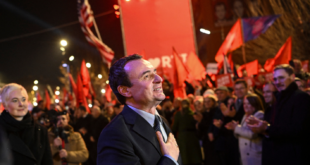Serbia should start being truthful about its role in the Balkan wars of 1990s and adopt a formal strategy for dealing with victims and perpetrators, says a Council of Europe human rights report.
The Council of Europe’s Commissioner for Human Rights, Thomas Hammarberg said on Wednesday during a visit to Belgrade that Serbia should adopt a formal “strategy for accepting and telling the truth about the conflict in the region”.
He said Serbia has failed to provide any compensation to war victims; it is not weeding out officials that are tainted by past crimes and has yet to address “the role of the secret services in supporting” war crimes suspects who remain fugitives from the International Tribunal in The Hague.
“There is a tendency for state institutions to diminish the role of Serbia in the conflict,” Hammarberg said in a 24,000-word report on Serbia’s human rights record. Serbian officials have not commented on his report.
His report may strengthen the case of those who believe that Serbia must first meet its international human rights obligations before being able to progress towards the EU. The Netherlands in particular is vetoing that effort by withholding approval of a pre-membership trade deal until Belgrade has surrendered for Ratko Mladic — Europe’s most wanted fugitive, wanted for his role in the 1995 massacre of 8,000 Muslims in the Bosnian enclave of Srebrenica.
 Eurasia Press & News
Eurasia Press & News



